The 1950s marked a significant and transformative period in the history of American music.
Amidst the challenges of racial segregation and widespread discrimination, a group of black singers in the 1950s emerged as trailblazers, reshaping the narrative of the emerging rock and roll genre.
These artists challenged societal norms and dismantled barriers attempting to limit their talents.
Despite facing adversity, these musicians crafted enduring melodies and played a pivotal role in driving social change.
This left an enduring impact on the music landscape that continues to resonate today.
In this article, we explore the lives and contributions of these iconic figures who, against formidable odds, etched their names into the very tapestry of music history during the transformative 1950s.
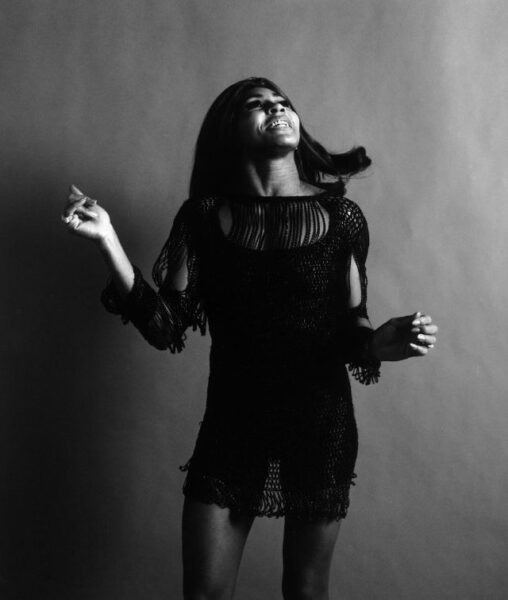
Credits: @vintageeveryday / Pinterest
Key Takeaway
- The 1950s marked a pivotal era where black musicians emerged as trailblazers, reshaping rock and roll despite racial barriers.
- Soul, R&B, and blues innovators broke new ground, blending styles and advancing African-American music.
- Civil rights anthems became interwoven with the music landscape as artists contributed songs to reflect and inspire the social justice movement.
- The music and resilience of 1950s black artists left an enduring cultural impact, influencing modern music and advancing the cause of equality. Their barrier-breaking legacies continue today.
Rock and Roll Origins
In the rhythmic pulse of the 1950s, the birth of rock and roll marked a seismic shift in the music industry. This challenged societal norms and set the stage for a cultural revolution.
This dynamic genre – pulsating with energy and rebellion – was pioneered by a group of extraordinary musicians who defied racial barriers and transformed the musical landscape.
Here are some of the most influential figures that shaped the origins of Rock and Roll:
Little Richard: The Architect of Wild Energy
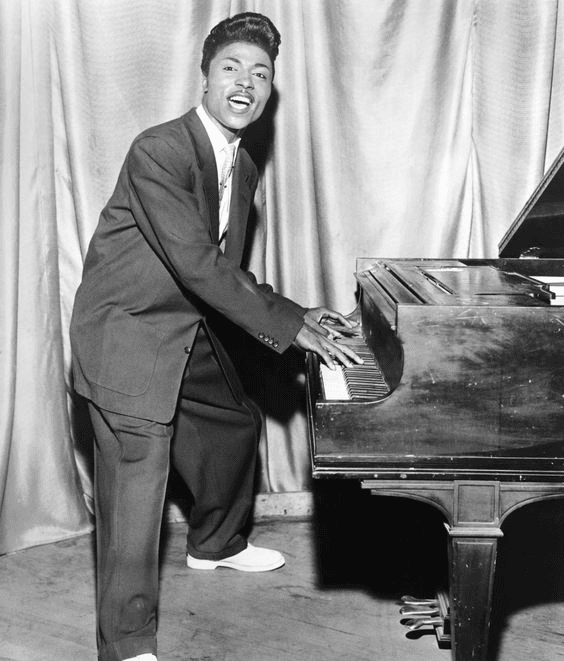
Credits: @thenewyorker / Pinterest
Richard Wayne Penniman, born on December 5, 1932, in Macon, Georgia, transcended the racial and societal constraints of his time to become the flamboyant architect of rock and roll.
Raised in a deeply religious environment, Little Richard’s early exposure to gospel music laid the foundation for his dynamic and groundbreaking contributions to the music industry.
With his androgynous fashion, energetic piano performances, and uninhibited vocals, he broke barriers and redefined the genre.
Hits like “Tutti Frutti” topped the charts and became anthems of the 1950s youth culture.
Beyond his chart-topping success, Little Richard’s influence on the rock and roll genre remains immeasurable.
This earned him a well-deserved place as one of the greatest architects of American music history.
His legacy lives on, inspiring generations of artists to embrace their individuality and push the boundaries of musical expression.
Chuck Berry: The Guitar Virtuoso

Credits: @DailyMail / Pinterest
Chuck Berry, born in 1926 in St. Louis, Missouri, is celebrated as a legendary guitarist and a pioneering figure in the development of rock and roll.
A trailblazer who defied racial divides in the music industry, Berry’s guitar virtuosity and influential songwriting are exemplified in hits like “Johnny B. Goode.”
His impact on rock and roll is immeasurable, influencing countless musicians and earning him the title of one of the genre’s founding fathers.
Berry’s contributions resonate as a testament to the enduring power of his innovative sound and charismatic stage presence.
Fats Domino: The New Orleans Pioneer
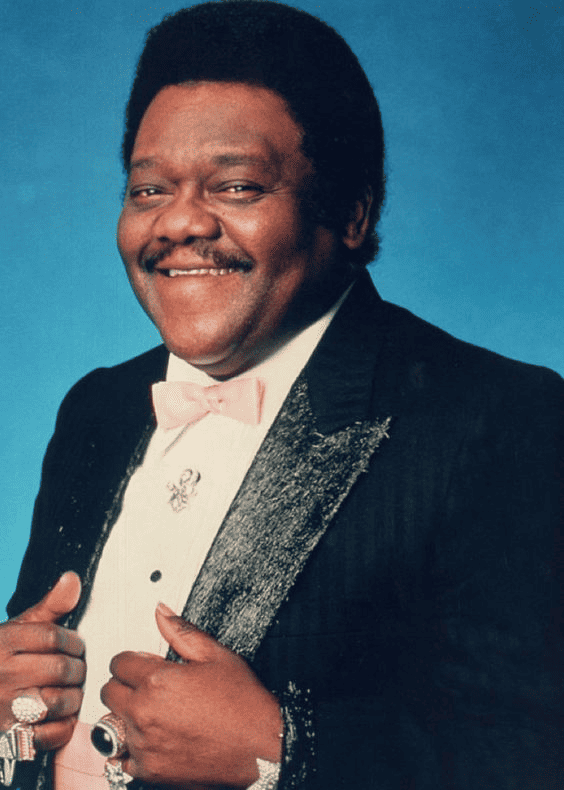
Credits: @camdesigns / Pinterest
Antoine Domino Jr., better known as Fats Domino, was born in New Orleans, Louisiana, on February 26, 1928.
A pioneer of rock and roll, Domino brought the distinctive New Orleans piano style to the forefront of the genre.
His crossover hits, including “Blueberry Hill,” seamlessly integrated rhythm and blues into the early rock sound, defying industry barriers.
Fats Domino’s legacy is marked by his unmistakable piano rhythms and the timeless impact of his contributions to the music landscape.
Soul, R&B and Blues Innovators
In 1950s black music evolution, the category of “Soul, R&B, and Blues Innovators” stands as a testament to the transformative power wielded by artists who redefined genres and broke down barriers.
This leaves an indelible mark on the tapestry of musical history.
These innovators not only defined an era but laid the foundation for the enduring legacy of African American singers in the realm of soul, R&B, and blues.
Here are some of the most popular Soul, R&B, and Blues black singers of the 1950s:
Ray Charles: A Soulful Fusion Maestro

Credits: @lostile / Pinterest
Ray Charles, born in 1930 in Albany, Georgia, stands as a towering figure in the realm of soul, rhythm, and blues.
Blind since childhood, Charles overcame adversity to become a musical maestro whose influence reached far beyond genre boundaries.
His groundbreaking track “What’d I Say” in 1959 showcased his unparalleled talent in blending gospel, R&B, and jazz singers, setting a new standard for soulful expression.
Charles’s genre-defying vision, highlighted by his iconic rendition of “Georgia On My Mind,” left an enduring legacy, earning him the moniker “The Genius” and solidifying his place as one of the 20th century’s most influential musicians.
Sam Cooke: Smooth Crossover Soul
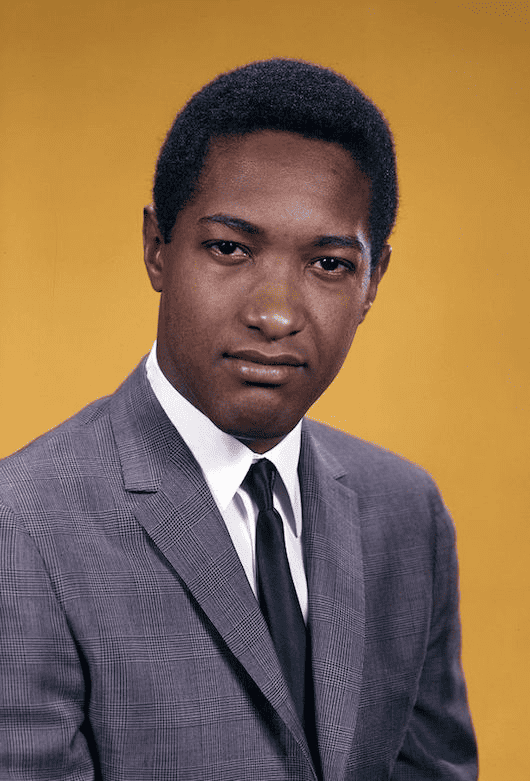
Credits: @udiscovermusic / Pinterest
Sam Cooke, born on January 22, 1931, in Clarksdale, Mississippi, was a trailblazer in soul music and pivotal in breaking racial divides within the pop music landscape.
As a gospel singer with the Soul Stirrers, Sam Cooke transitioned to pop and soul, creating a smooth and crossover sound.
His contributions include iconic hits like “A Change Is Gonna Come,” which became a poignant anthem for the Civil Rights Movement.
Cooke’s velvety voice and songwriting prowess left an indelible mark on the music industry, and his impact on soul music’s evolution remains profound.
Despite his tragic death at a young age, Sam Cooke’s legacy endures as a beacon of artistic innovation and social consciousness in the history of American music.
James Brown: The Godfather of Soul’s Electrifying Presence
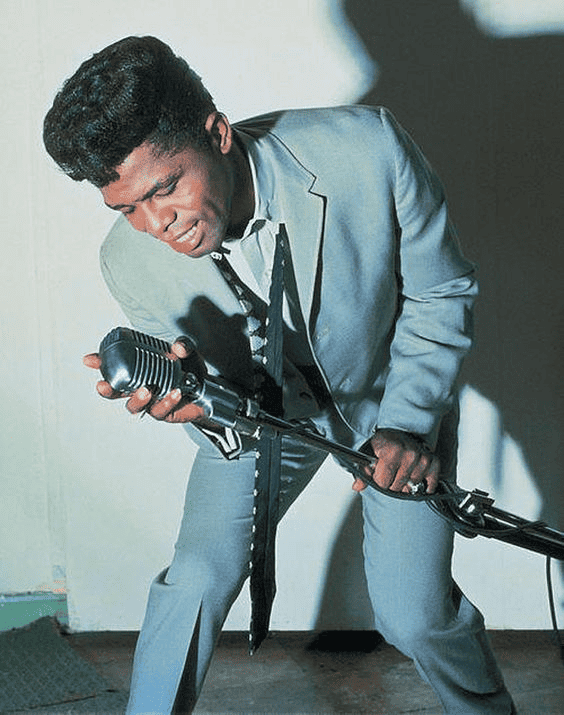
Credits: @camdesigns / Pinterest
James Brown, born on May 3, 1933, in Barnwell, South Carolina, earned the title “Godfather of Soul” through his electrifying stage presence and innovative contributions to music.
His dynamic performances, such as “I Got You (I Feel Good),” became emblematic of his influence in integrating African American music into popular culture.
Beyond his impact on the soul genre, Brown’s legacy extends to his pivotal role in shaping funk music.
His revolutionary approach and indomitable spirit continue to resonate, leaving an enduring mark on the evolution of black American music.
Muddy Waters: Bridging the Blues and Rock Divide
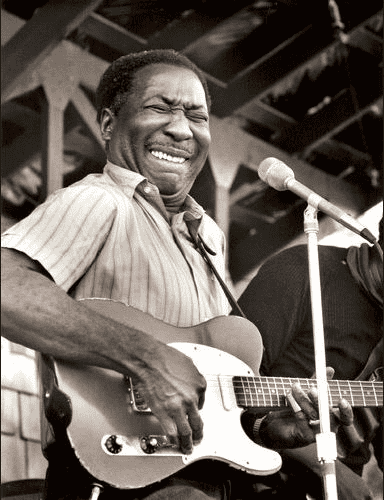
Credits: @avevdokimov / Pinterest
Muddy Waters, born McKinley Morganfield on April 4, 1913, in Rolling Fork, Mississippi, stands as a cornerstone of Chicago blues.
Overcoming the blues’ initial lack of mainstream popularity, Waters became an electrifying blues icon with hits like “Mannish Boy.”
His raw and powerful approach shaped the blues genre and built a vital bridge between blues and rock, influencing generations of musicians.
Muddy Waters’ enduring legacy cements his status as a transformative force in the evolution of American music.
Tina Turner: The Queen of Rock and Soul

Credits: @GersonBrito74 / Pinterest
Tina Turner, born Anna Mae Bullock in 1939, is an iconic force in music. Rising from the tumultuous Ike Turner duo, she transcended challenges to become the “Queen of Rock and Soul.”
With hits like “What’s Love Got to Do with It,” Turner’s powerful voice and dynamic stage presence earned her international acclaim.
Beyond her musical prowess, she symbolizes resilience and remains an enduring figure in the realm of legendary musicians.
Extraordinary Vocalists
The 1950s was a golden age for vocalists when black singers with exceptional talent and charisma graced the stage and captivated audiences worldwide.
These extraordinary artists possessed technical prowess, emotional depth, and captivating stage presence, pushing the boundaries of what the human voice could achieve.
Among these vocal luminaries included:
Ella Fitzgerald: Jazz’s Beloved Trailblazer
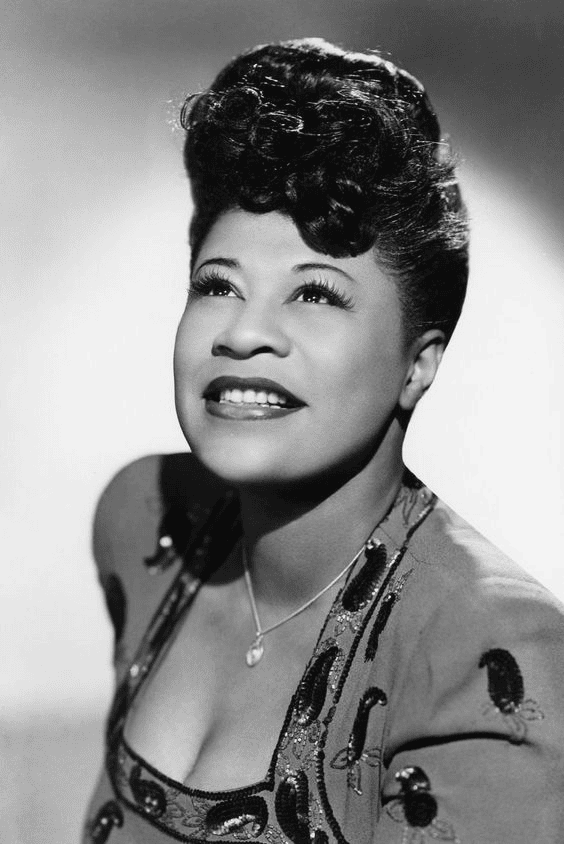
Credits: @goodhousemag / Pinterest
Ella Fitzgerald, born on April 25, 1917, in Newport News, Virginia, stands as a towering figure in the history of jazz and vocal music.
Renowned for her extraordinary vocal range, impeccable phrasing, and improvisational mastery, Fitzgerald shattered racial and gender expectations, earning her the title of the “First Lady of Song.”
Fitzgerald’s talent transcended eras from her early days as a teenage contestant at the Apollo Theater’s Amateur Night to becoming one of the most celebrated jazz vocalists of all time.
With timeless classics like “Summertime” and “A-Tisket, A-Tasket,” she left an indelible mark on the jazz landscape, embodying grace, sophistication, and unparalleled musicality throughout her prolific career.
Ella Fitzgerald’s legacy endures as an icon of vocal artistry and a trailblazer who paved the way for generations of artists to come.
Billie Holiday: Poignant Elegance and Social Anthem
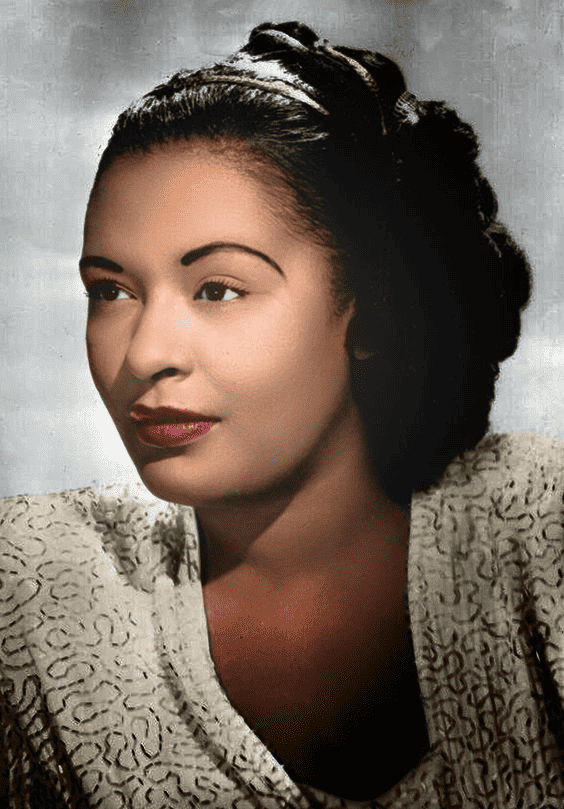
Credits: @katie_kintner / Pinterest
Billie Holiday, born Eleanora Fagan on April 7, 1915, in Philadelphia, emerged as one of the most influential and emotionally expressive jazz singers of the 20th century.
Given the racial and gender adversity, Holiday’s poignant vocal delivery transcended barriers, making her an enduring icon.
Her unique ability to infuse raw emotion into every note and her haunting rendition of “Strange Fruit,” a powerful commentary on racial violence, solidified her as a symbol of musical innovation and social consciousness.
Despite a turbulent life, Billie Holiday’s legacy remains immeasurable.
Her impact is felt in jazz and as an enduring voice in the ongoing narrative of the black experience in America.
Dinah Washington: The Queen of the Blues
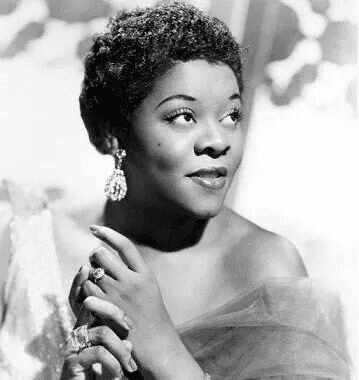
Credits: @glamrkitn / Pinterest
Dinah Washington, born Ruth Lee Jones on August 29, 1924, in Tuscaloosa, Alabama, ascended to prominence as the “Queen of the Blues” with unparalleled vocal talent and emotional depth.
Overcoming the constraints faced by black female artists, Washington’s performances transcended racial and genre boundaries.
With hits like “What a Diff’rence a Day Made,” she dominated the blues scene and ventured into jazz and pop, creating a musical legacy that resonates with authenticity and raw emotion.
Dinah Washington’s influence extends far beyond her time, as her soul-stirring voice continues to captivate audiences and inspire future generations of vocalists.
Aretha Franklin: The Unmatched Force of Nature
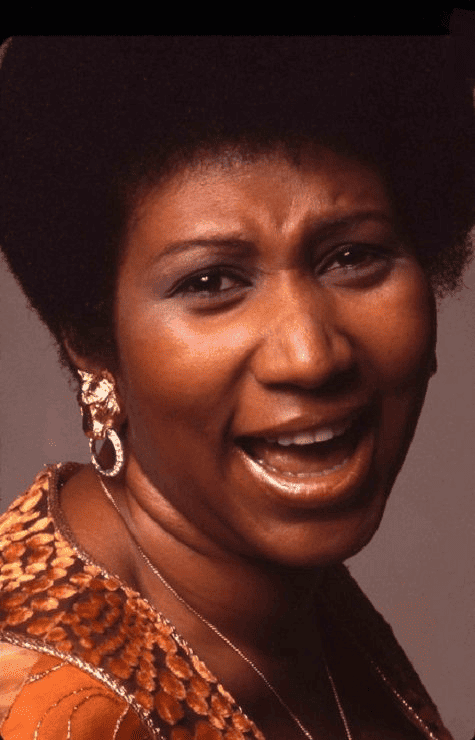
Aretha Franklin, born on March 25, 1942, in Memphis, Tennessee, reigned as the undisputed “Queen of Soul” and an unparalleled force in American music.
With prodigious vocal skills and an innate ability to infuse profound emotion into her performances, Franklin became a cultural icon.
Her visibility as an African American star not only reshaped the landscape of the music industry but also bolstered black pride during a pivotal era of social change.
Hits like “Respect” and “Natural Woman” showcased her vocal prowess and made her a symbol of empowerment.
Aretha Franklin’s enduring legacy, marked by numerous accolades and an indomitable spirit, solidifies her as one of the greatest vocalists in the history of popular music.
Louis Armstrong: The Trailblazing Virtuoso
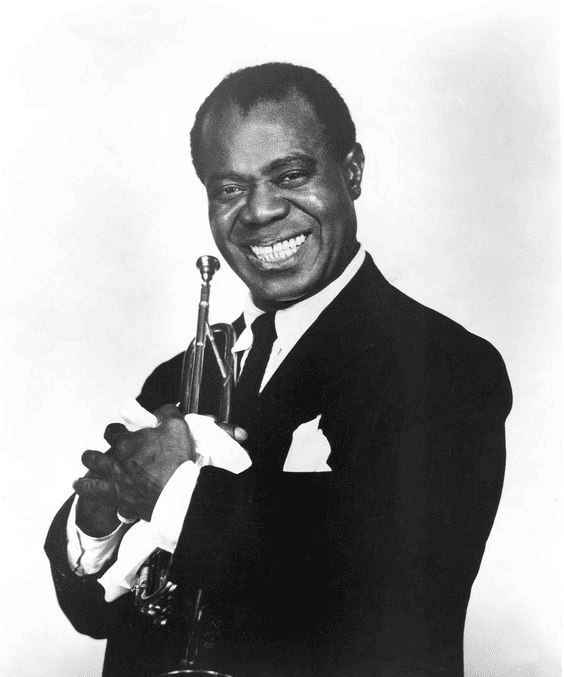
Credits: @MadameNoire / Pinterest
Louis Armstrong, born on August 4, 1901, in New Orleans, Louisiana, revolutionized the world of jazz and left an indelible mark on the history of music.
As a virtuoso trumpeter and unparalleled vocalist, Armstrong’s gravelly voice and innovative improvisational style set the standard for generations to come.
Emerging from the vibrant jazz scene of the early 20th century, he became a global ambassador for the genre, spreading its infectious joy and rhythm.
Hits like “What a Wonderful World” showcased his technical mastery and a heartfelt delivery that resonated with audiences worldwide.
Armstrong’s influence extends far beyond his era, as he remains a timeless icon, celebrated for his unparalleled contributions to the evolution of jazz and his enduring impact on the art of vocal expression.
The Crossover Stars
These Crossover Stars, played a pivotal role in breaking down racial barriers within the music industry.
Their universal appeal demonstrated their immense talent and set the stage for increased diversity and inclusivity in mainstream music.
Here, we celebrate these trailblazers who soared to stardom and reshaped the landscape of the 1950s music scene.
Nat King Cole: Smooth Crooner and Trailblazer
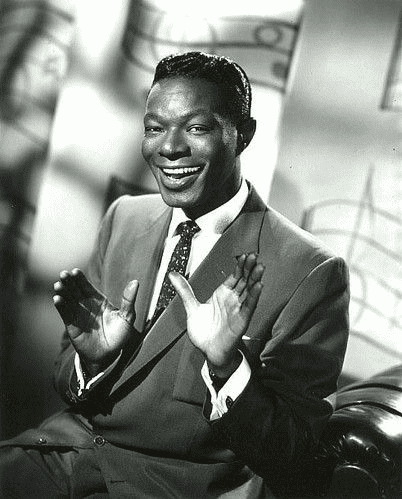
Source: flickr.com
Nat King Cole, born Nathaniel Adams Coles on March 17, 1919, in Montgomery, Alabama, rose to prominence as a trailblazing figure in American music.
His velvety smooth vocals and unparalleled artistry made him an iconic crooner and positioned him as one of the first African American artists to achieve lasting pop success.
Cole’s journey to stardom began in jazz, where he established himself as a talented pianist and vocalist.
His breakout hit, “Straighten Up and Fly Right,” marked the beginning of a remarkable career.
As a crossover artist in the 1950s, Cole’s ability to captivate white audiences was groundbreaking for its time.
In an era of racial segregation, Cole’s success went beyond music; it became a statement of cultural integration.
His timeless ballads, including classics like “Unforgettable” and “Mona Lisa,” resonated with listeners across racial lines, inspiring broader acceptance of black music.
Cole’s legacy extends beyond his chart-topping success; he inspired broader acceptance of black music, paving the way for greater diversity in the industry.
Diana Ross: Motown’s Leading Lady
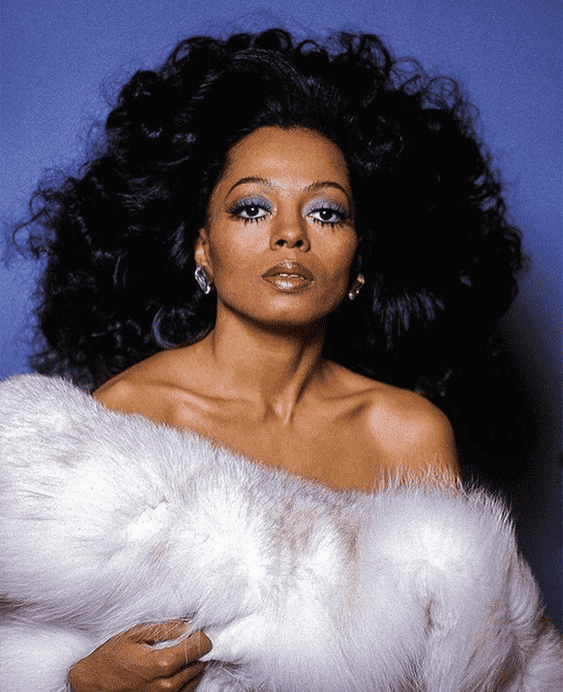
Credits: @chelsea_albert / Pinterest
Diana Ross, born on March 26, 1944, in Detroit, Michigan, stands as a musical icon whose career traversed the landscape of Motown and beyond.
Rising to prominence as the lead singer of The Supremes in the 1960s, Ross played a pivotal role in breaking racial barriers within the music industry, achieving unparalleled success and universal appeal.
Transitioning to a solo career in the 1970s hits like “Ain’t No Mountain High Enough” showcased her dynamic voice and brought Motown’s soulful sound to an even broader audience.
Diana Ross’s crossover stardom exemplified the potential for black performers to achieve mainstream success. This paved the way for future generations.
Her elegance, talent, and enduring influence make her a musical powerhouse and a symbol of resilience and achievement in the face of racial challenges.
Sammy Davis Jr.: Entertainer Extraordinaire
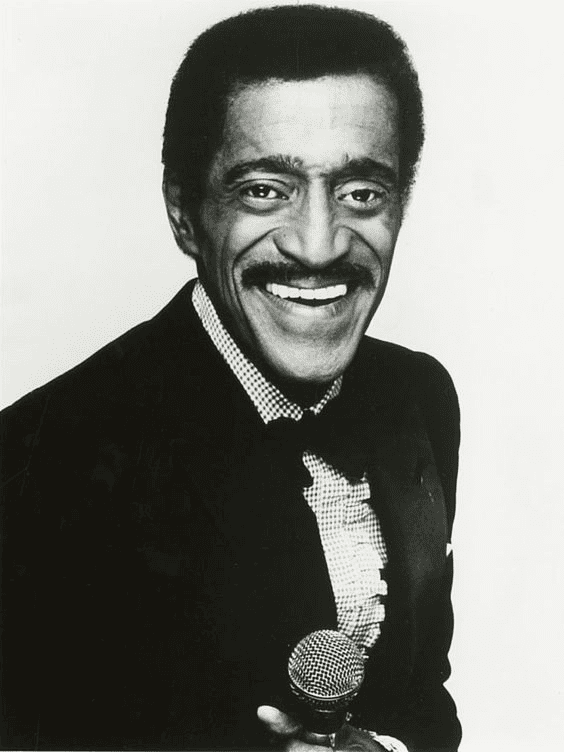
Credits: @camdesigns / Pinterest
Sammy Davis Jr., born on December 8, 1925, in Harlem, New York City, was a multifaceted entertainer who left an indelible mark on the 1950s and 1960s.
Renowned for his singing, dancing, and acting talents, Davis was a trailblazing crossover sensation.
His charisma and versatility appealed to diverse audiences, challenging racial norms in the entertainment industry.
As an African American entertainer, Davis paved the way for greater acceptance and recognition in mainstream entertainment, contributing to a more inclusive cultural landscape.
Harry Belafonte: Calypso King and Activist
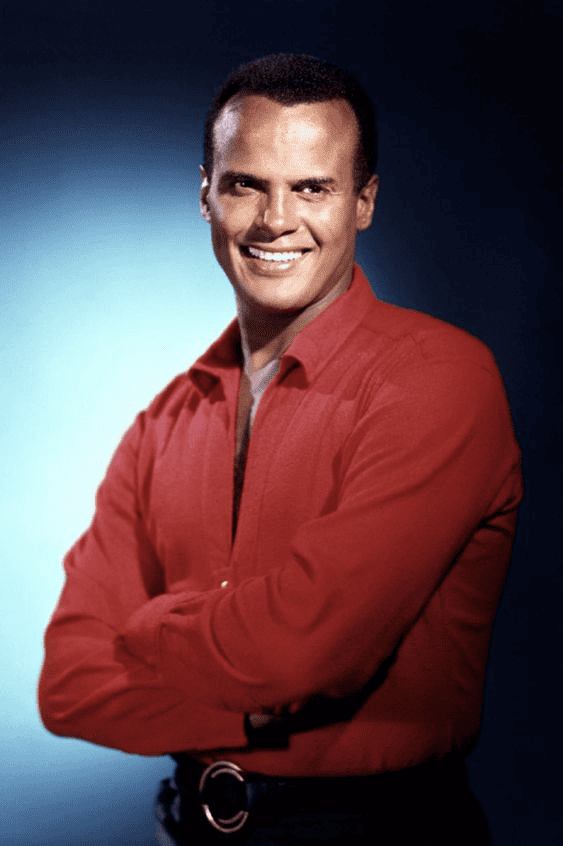
Credits: @BlackDoctor / Pinterest
Born on March 1, 1927, in Harlem, New York City, Harry Belafonte is a pioneering figure whose impact extends beyond music and entertainment.
Rising to prominence in the 1950s, Belafonte achieved immense popularity with his calypso-infused music, earning the title of the “King of Calypso.”
Hits like “Day-O (The Banana Boat Song)” became emblematic of his distinctive style and contributed to his crossover success with both black and white audiences.
Mainstream Recognition: Celebrating Musical Excellence
In the pursuit of mainstream recognition, several milestones have played pivotal roles in elevating the contributions of black artists, breaking down racial barriers, and shaping the course of music history.
Grammy Awards: Breaking Through Segregation
The Grammy Awards, established in 1959, emerged as a crucial platform for transcending racial divides in the music industry.
During an era of segregation, the Grammys provided a stage for black artists to showcase their exceptional talent, bringing greater visibility to their achievements and contributing to the ongoing fight for equality in the music world.
Over the years, numerous pioneering black singers have been honored for their outstanding contributions. Some notable winners include Ella Fitzgerald and Aretha Franklin, among others.
Rock and Roll Hall of Fame: Honoring R&B and Rock Pioneers
Induction into the Rock and Roll Hall of Fame has been a milestone that cements the rightful place of R&B and rock pioneers in the annals of music history.
The Hall of Fame, inaugurated in 1983, recognizes artists’ cultural impact and enduring influence, serving as a testament to their contribution to the evolution of music across genres.
Among those inducted into the Hall of Fame, Sam Cooke’s enshrinement in 1986 stands as a poignant milestone, affirming his enduring impact on the music landscape.
Social Change Through Music: A Harmonious Catalyst for Progress
In the intricate dance between music and societal transformation, certain artists and movements have served as poignant orchestrators of change, their melodies becoming anthems for justice and beacons of hope during pivotal moments in history.
Civil Rights Movement: A Musical Battle Cry
The Civil Rights Movement of the 1950s and 1960s witnessed an extraordinary convergence of activism and music.
Artists like Sam Cooke, through their powerful songwriting, penned anthems that reverberated with the urgency of the era.
Songs like “A Change Is Gonna Come” became rallying cries, weaving through the fabric of protests and marches, amplifying the voices of those fighting for racial equality.
Music became a weapon of expression, fostering unity and resilience in adversity.
Mahalia Jackson, often hailed as the “Queen of Gospel,” was a luminary who brought the soul-stirring sounds of gospel music straight from the church into the mainstream.
Her resonant voice and impassioned performances not only elevated the gospel to new heights but also inspired racial justice advocates.
Jackson’s collaboration with Dr. Martin Luther King Jr. during the Civil Rights Movement further solidified her role as a spiritual and musical force for change.
Her rendition of “We Shall Overcome” became an anthem of the movement, a soulful prayer for justice that transcended religious and racial boundaries.
The Lasting Influence
In the face of racial injustice, the black musicians of the 1950s emerged as resilient trailblazers, crafting a musical legacy that defied societal constraints.
From the energetic tunes of Little Richard to the soulful ballads of Aretha Franklin, their impact transcended boundaries, shaping the very fabric of music.
As we reflect on their triumphs, we recognize the enduring influence of these pioneers, who conquered adversity and laid the groundwork for a more inclusive musical landscape.
The 1950s black singers not only changed the rhythm of their time but set a timeless melody that continues to resonate in the different genres /crossing tunes we treasure today.
Takeaway
As we reflect on the musical revolution sparked by black singers in the 1950s, it’s a reminder that art can transcend challenges and redefine history.
Their resilience in the face of adversity, the melodies that became anthems for justice, and the lasting impact on genres are timeless lessons.
The legacy of these pioneers teaches us the enduring power of music to inspire change, break barriers, and create a harmonious tapestry that resonates across generations.
Let their stories be a valuable echo in our minds, urging us to appreciate the transformative potential of creativity and unity in the pursuit of a more inclusive world.
